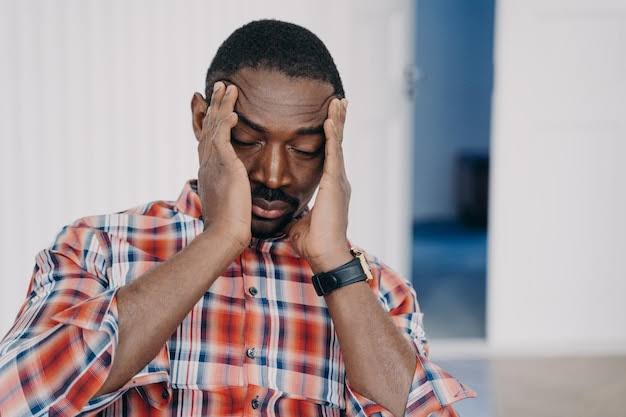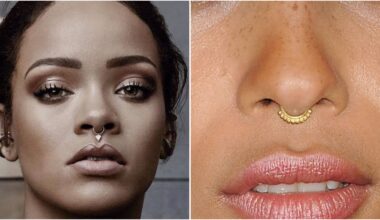Are you struggling with low energy levels, muscle weakness, or slow recovery after workouts? If so, you may not be consuming enough protein in your diet. Protein is an essential macronutrient that plays a crucial role in building and repairing tissues, supporting immune function, and maintaining overall health. In this article, we will explore the signs that indicate you are not getting enough protein in your diet. By understanding these signs, you can make necessary changes to ensure you meet your protein needs.
Importance of Protein in the Diet
Protein is often referred to as the building block of life, and for good reason. It is essential for the growth, development, and repair of body tissues. Every cell in your body contains protein, from your muscles and organs to your skin, hair, and nails.
Protein also plays a vital role in the production of enzymes, hormones, and antibodies, which are necessary for various physiological processes. It helps regulate blood sugar levels, supports a healthy metabolism, and aids in weight management by promoting feelings of fullness.
Common Signs of Protein Deficiency
Insufficient protein intake can lead to a range of symptoms and health issues. Let’s take a look at some of the common signs that indicate you may not be getting enough protein in your diet.
Hair Loss and Brittle Nails
Protein is essential for healthy hair and nails. If you’re not consuming enough protein, you may notice increased hair shedding or thinning, as well as brittle nails that break easily. This is because protein is needed for the growth and strength of hair follicles and nails.
Frequent Illness and Slow Wound Healing
Protein plays a crucial role in supporting the immune system. It helps produce antibodies and immune cells that defend against infections and promote healing. If you’re frequently falling ill or noticing slow wound healing, it could be a sign of protein deficiency.
Muscle Weakness and Fatigue
Protein is necessary for muscle growth, repair, and maintenance. When you don’t consume enough protein, your muscles may become weak and fatigued. You may experience difficulty in performing physical activities or notice a decrease in strength and endurance.
Difficulty Losing Weight
Protein is known for its ability to promote satiety and increase metabolism. When you don’t consume enough protein, you may find it harder to lose weight or maintain a healthy weight. This is because protein-rich foods help you feel full for longer, reducing cravings and the likelihood of overeating.
Understanding the Recommended Daily Protein Intake
The amount of protein you need depends on various factors, including age, sex, weight, activity level, and overall health. The Recommended Dietary Allowance (RDA) for protein is 0.8 grams per kilogram of body weight for adults. However, this recommendation may not be sufficient for everyone, especially those who are physically active or have specific health conditions.
To determine your specific protein needs, it’s best to consult with a healthcare professional or a registered dietitian. They can assess your individual requirements and provide personalized recommendations.
Factors That Can Affect Protein Needs
Several factors can influence your protein needs. These include:
Physical Activity Level
If you engage in regular physical activity, especially activities that involve strength training or endurance exercises, your protein requirements may be higher. This is because exercise causes muscle breakdown, and protein is needed for muscle repair and growth.
Age
As you age, your protein needs may increase. Older adults often experience muscle loss and reduced muscle protein synthesis, making it crucial to consume adequate protein to maintain muscle mass and function.
Health Conditions
Certain health conditions, such as kidney disease or malabsorption disorders, may require adjustments to your protein intake. It’s important to discuss any medical conditions with your healthcare provider to ensure you’re meeting your specific dietary needs.
How to Determine If You’re Not Eating Enough Protein
Now that we understand the importance of protein and the factors that can affect your protein needs, let’s delve into how you can determine if you’re not eating enough protein.
Physical Signs of Protein Deficiency
Physical signs of protein deficiency may include:
- Muscle wasting or loss of muscle mass
- Edema (swelling) due to fluid retention
- Thin and fragile skin
- Delayed wound healing
- Frequent bone fractures or osteoporosis
- Anemia or low red blood cell count
If you notice any of these physical signs, it’s essential to evaluate your protein intake and make necessary dietary changes.
Mental and Emotional Signs of Protein Deficiency
Protein deficiency can also impact your mental and emotional well-being. Some common signs include:
- Mood swings and irritability
- Difficulty concentrating or brain fog
- Fatigue and lack of energy
- Poor sleep quality
- Depression or anxiety
If you’re experiencing any of these symptoms, it’s worth considering if inadequate protein intake could be a contributing factor.
Tips for Increasing Protein Intake
If you suspect you’re not eating enough protein, there are several practical tips you can follow to increase your intake and ensure you’re meeting your protein needs.
Protein-Rich Food Sources
Incorporating protein-rich foods into your meals is an effective way to boost your protein intake. Some excellent sources of protein include:
- Lean meats, such as chicken, turkey, and fish
- Eggs and dairy products
- Legumes, such as beans, lentils, and chickpeas
- Nuts and seeds
- Quinoa and other whole grains
- Tofu and other soy products
By including a variety of these foods in your diet, you can ensure you’re getting a good balance of essential amino acids, which are the building blocks of protein.
Conclusion
Protein is an essential macronutrient that plays a crucial role in maintaining overall health and wellness. Insufficient protein intake can lead to a range of symptoms and health issues, from hair loss and muscle weakness to difficulty losing weight and frequent illness.
By understanding the signs of protein deficiency and making necessary dietary adjustments, you can optimize your protein intake and support your active lifestyle. Remember to consult with a healthcare professional or a registered dietitian to determine your specific protein needs and ensure you’re meeting them adequately.
Don’t let protein deficiency hold you back. Take action today and prioritize your protein intake for optimal health and well-being






